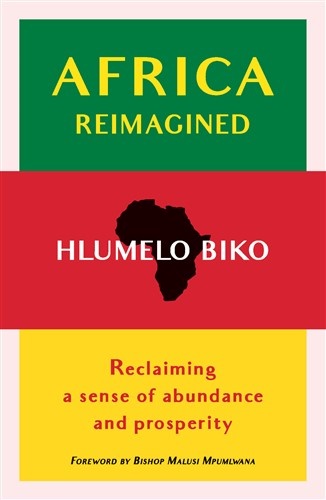
Every once in a while, a parent sets up what they think is a teaching moment, only to get a rude awakening themselves, resulting in their learning more than they are teaching. In 2018 I took my son to watch the film Black Panther, thinking that I would be exposing him to something that would make him more (as the kids say these days) 'woke'. But I was the one whose eyes were opened.
Growing up in townships in South Africa like Lenyenye, Langa and Gugulethu, I did not have occasion to read Marvel comics. Apart from knowing that Black Panther was one of the few superhero movies with an African superhero, I went in blind.
I was stunned by the film and what it stood for. Director Ryan Coogler created a new subjective reality in which the most technologically advanced nation in the world is a secretive African one named Wakanda. This nation has managed to harvest the extraordinary powers derived from a mineral resource named vibranium to build a capital city that showcases technology the rest of the world hasn't even heard of yet. Against the backdrop of majestic skyscrapers, vibranium-powered hovering cars fly alongside a magnetic-levitation train zipping along an elevated track.
Once we adjust to the glitz and the glamour that surrounds this mystical world, we notice some interesting details that complete the mind-bending assault on our traditional view of normal. African beads, clothing patterns and traditional weapons sit side by side with space-age artillery and cloth made using nanotechnology. African music plays in the background of a command centre that would make NASA jealous. The generals in the army are dominated by women, whose outfits combine Masai warrior clothing with Star Trek-type gear.
This serves to instantaneously challenge the viewer's previously held assumptions about standards and norms. In a 'normal' superhero movie, the superhero (whether they come from space or if their mutation happened here on earth) is from some small town in the United States of America, has an American accent and is 'white'. We don't think twice about these details. We simply accept, and are indeed primed by society to accept, them as normal.
Yet this social priming is hardly benign. The signals we pick up indicate important details about how the world works and what the ethnic pecking order is. From these signals, and from the stylised intersubjective view of white superiority reinforced by popular culture, we start to form hardened views of socially acceptable hierarchies and the limitations they imply for our expectations of certain ethnic groups.
Most of us are constantly alert to the signals that indicate whether what we are doing is socially acceptable or not. This instinct has allowed humans to organise themselves around generally accepted ways of acting, from which come morals, ethics, values and laws. As humans have developed, we have come to use the terms 'normal' and 'abnormal' as shorthand to describe these ways of acting, or behaviour.
We deem something to be normal if it conforms to a standard. Accordingly, whoever creates the standard gets to determine the social acceptability of behaviour. When studying and writing about different social impulses, social scientists often speak of norms and values. We don't always ask who sets the original standard against which such norms are judged. It is only in very rare cases that norms or values are more than loosely defined descriptions that attempt to explain what are often fairly recent practices. More worryingly, our inability to rigorously test norms against the backdrop of historical changes in social structure and the nature of cultural influences on social action leads us to make conclusions about behaviour that are often faulty.
We would do well to remember Emile Durkheim's thoughtful reflection: 'All empirical instances of social action can be said to be shaped and channelled, on the one hand, by social structure, culture and (on the other hand by) collective emotions.' In today's winner-takes-all approach to history, just one side of Durkheim's social equation is satisfied, namely, that norms are what the dominant social power structures say they are. Not enough room is left to consider the enormous role played by collective emotions in legitimising rules and norms.
Africans, who over the last thousand years have not often been the victors in conflicts with people of other continents and religions, have lost their voice in history. Over the last 2 500 years, in particular, Africans have seen their norms and values recede into the social background. This has been exaggerated by the way in which African history has been written. Our history has hidden from us the crucial role that culture and collective emotions play in the long-term sustainability of what elites have pronounced to be modern norms.
To put this another way, there have been long periods of history during which the Pharaonic Dynasties of Egypt (3100 BCE to 332 BCE), the Kingdom of Mapungubwe (900–1300), the Kingdom of Mali (1230–1670), the Kingdom of Axum/Abyssinia, both in modern-day Ethiopia (1270–1636), the Kingdom of Kongo (1390–1888) and the Kingdom of Ghana (700–1240) had legitimate claim to being among the wealthiest and most advanced societies in the world. These periods are completely ignored, or presented in a bastardised fashion, by popular African history.
I begin this book with an appeal for the appreciation of cultural identity, because such an appreciation is a prerequisite for our ability to reimagine Africa. The foundation for reimagining Africa has been laid perhaps most substantially by scholars such as Cheikh Anta Diop, Dr Yosef Ben-Jochannan, John Henrik Clarke, Chancellor Williams, Dr Ivan van Sertima and Professor George GM James, who are regarded by many Pan Africanists as the pre-eminent historians of ancient African civilisation. For Cheikh Anta Diop, an approach to the study of norms and values has to be mindful of the following factors: 'For every individual his or her own cultural identity is a function of that of his or her people.
Consequently, one must define the cultural identity of a people. This means to a great extent one must analyse the components of the collective personality. We know that three factors contribute to its formation: 1) a historical factor; 2) a linguistic factor; 3) a psychological factor.' Understanding a people requires a keen knowledge of their history, their languages and how they construct reality.
The political struggle of African nations for liberation from colonialism and/or imperialism has been misjudged as a struggle purely for the attainment of liberal democracy. This has led to a severe misreading of the influence of both collective emotions and cultural sentiment on desired popular norms.
An alternative way to look at the struggle for liberation in Africa could be as a struggle for self-determination. Looking at the liberation struggle in this way requires faith in the ability of the African masses to self-determine. Self-determination implies the attainment of both political and economic freedom. Defining the objective in this way would also require an admission that post-colonial African societies have failed to carry out the self-determination required by the people, thus the struggle very much continues.
* This is an extract from Africa Reimagined by Hlumelo Biko, published by Jonathan Ball Publishers.




 Publications
Publications
 Partners
Partners















